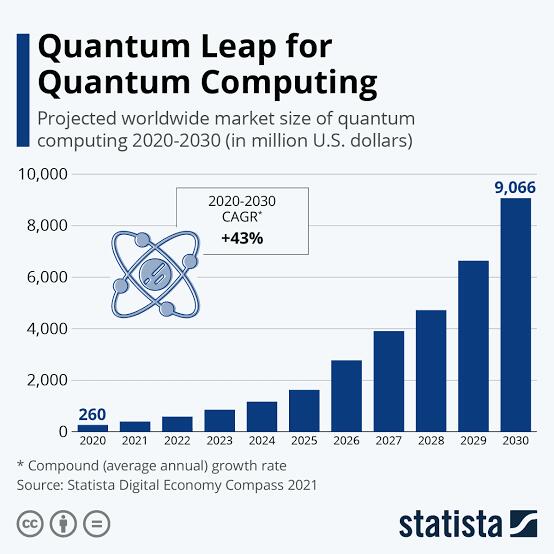-
 @ Jax
2024-12-19 12:08:51
@ Jax
2024-12-19 12:08:51Introduction Quantum computing is a revolutionary technology that uses the principles of quantum mechanics to perform calculations that are exponentially faster and more powerful than those of classical computers. The rise of quantum computing has significant implications for cybersecurity and data protection, and in this article, we will explore what these implications are.
 The Power of Quantum Computing
Quantum computers use quantum bits or qubits, which can exist in multiple states simultaneously, allowing for an exponential increase in computing power. This means that quantum computers can perform certain calculations much faster than classical computers, which has significant implications for cybersecurity.
The Power of Quantum Computing
Quantum computers use quantum bits or qubits, which can exist in multiple states simultaneously, allowing for an exponential increase in computing power. This means that quantum computers can perform certain calculations much faster than classical computers, which has significant implications for cybersecurity.
 The Implications for Cybersecurity
The rise of quantum computing has significant implications for cybersecurity. Quantum computers can potentially break many of the encryption algorithms currently in use, which could compromise the security of online transactions and communication. This means that organizations and individuals will need to adopt new, quantum-resistant encryption algorithms to protect their data.
The Implications for Cybersecurity
The rise of quantum computing has significant implications for cybersecurity. Quantum computers can potentially break many of the encryption algorithms currently in use, which could compromise the security of online transactions and communication. This means that organizations and individuals will need to adopt new, quantum-resistant encryption algorithms to protect their data.
 The Impact on Data Protection
The rise of quantum computing also has significant implications for data protection. Quantum computers can potentially access and manipulate large amounts of data, which could compromise the privacy and security of individuals and organizations. This means that organizations and individuals will need to adopt new, quantum-resistant data protection measures to protect their data.
The Impact on Data Protection
The rise of quantum computing also has significant implications for data protection. Quantum computers can potentially access and manipulate large amounts of data, which could compromise the privacy and security of individuals and organizations. This means that organizations and individuals will need to adopt new, quantum-resistant data protection measures to protect their data.
 Preparing for a Quantum Future
To prepare for a future where quantum computers are a reality, organizations and individuals can take several steps:
1. Stay informed: Stay up-to-date with the latest developments in quantum computing and its implications for cybersecurity and data protection.
2. Adopt quantum-resistant encryption: Adopt new, quantum-resistant encryption algorithms to protect data from potential quantum computer attacks.
3. Implement quantum-resistant data protection measures: Implement new, quantum-resistant data protection measures to protect data from potential quantum computer attacks.
Preparing for a Quantum Future
To prepare for a future where quantum computers are a reality, organizations and individuals can take several steps:
1. Stay informed: Stay up-to-date with the latest developments in quantum computing and its implications for cybersecurity and data protection.
2. Adopt quantum-resistant encryption: Adopt new, quantum-resistant encryption algorithms to protect data from potential quantum computer attacks.
3. Implement quantum-resistant data protection measures: Implement new, quantum-resistant data protection measures to protect data from potential quantum computer attacks.Conclusion The rise of quantum computing has significant implications for cybersecurity and data protection. As quantum computers become more powerful and widely available, organizations and individuals will need to adopt new, quantum-resistant encryption algorithms and data protection measures to protect their data. By understanding the implications of quantum computing, we can take steps to prepare for a future where quantum computers are a reality.
Statistics: - The global quantum computing market is projected to reach $65 billion by 2025. (Source: MarketsandMarkets) - Quantum computers can potentially break many of the encryption algorithms currently in use, including RSA and elliptic curve cryptography. (Source: National Institute of Standards and Technology) - The use of quantum computers could compromise the security of online transactions and communication, potentially leading to significant financial losses. (Source: Ponemon Institute)
Sources: - “Quantum Computing Market” by Application, Industry, and Geography - Global Forecast to 2025" by MarketsandMarkets - "Post-Quantum Cryptography" by National Institute of Standards and Technology - "2019 Global Cybersecurity Survey" by Ponemon Institute